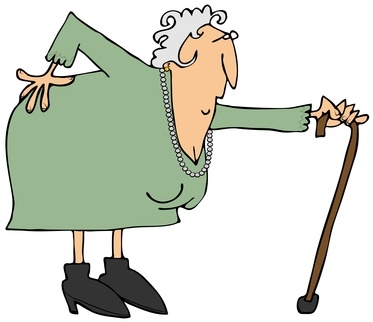Peek behind the curtain long enough, and you’re bound to see a writer hit a wall. I banged my head against just such a wall this week.
The wall of doubt.
I tortured myself with the question: Is this really what the character wants? Because if it is, then how do you explain what happens in chapter twelve? Maybe she wants something different.
I pulled a half dozen writing books off the shelf and skimmed the chapters about character objectives, wants, and needs. I took walks and ruminated, running scenarios through my head, bearing down on my brain, trying to squeeze out the right answer. I spent a day obsessing about this question, unaware of anything else in my life, and the only result was that my brain felt like it had gorged on too much meatloaf.
And then I got sick. Not from all that mental meatloaf (although that may have set the stage), but from something else. Something that forced me to take a break from my writing and acknowledge that I have a body, too.
One of the rules to writing is to figure it out on the page, not in your head. We’ll get to rules another time. Obviously, I’m not following them.
Try as I might, I couldn’t think my way through the problem. I needed to step away, take my mind off it altogether, and allow my subconscious to provide the answer. In the quiet, I could hear:
This is a learning process. Don’t be so hard on yourself. You don’t need to figure it out this minute or even today. And you don’t have to go it alone. Sometimes you need help. A new set of eyes.
So I reached out to one of my beta readers, a brilliant woman with an impish grin I’d met in an advanced fiction writing workshop. There were eight of us in the group. I had brought this particular manuscript to that particular group and received positive feedback. I emailed her and asked if she would look over the mess I was making. She remembered the story and was honored, she replied, that I had thought of her.
Honored! This woman is an ace literary writer. And oh how I admire good literary writers. She has an advanced degree in Creative Writing. I’ve got an A.A. In Theater Arts.
Don’t short-change yourself. You’ve studied on your own. You’ve sat at the keyboard practicing your literary scales for years. Don’t short-change yourself.
Tentatively, I approached my desk again. I opened the document on the screen. I printed out the first chapter. Immediately, on the printed page (and I don’t care what anyone says, the printed page is a far better vehicle for catching mistakes than on a screen), I saw what wasn’t working. I marked red slashes through entire pages. When I found an area that needed rewriting. I set the timer. I flowed for five minutes, and I honored the ding. I allowed my editorial eye to scan the hard copy until I found another section that needed work, and I repeated the steps.
Then I emailed the first two chapters to my writer friend. Until I hear back, I’m going to take a break. Go back to practicing scales.
This week I hit a wall. Hard. I slid down, my head reeling, and then I reached out for a boost upright. It happens. It will probably happen again. It’s all part of the process.
Takeaways this week:
If you don’t have a beta reader, try to find one.
Figure it out on the page, by writing, rather than obsessing about it in your head.
When editing, edit. When you need to rewrite a section, set the timer and allow the words to flow. Don’t try to edit and flow all at once. That’s like stepping on the gas and the brake at the same time.
Take time away to have fun, relax, and be in the world outside your head. Clear your mind. Meditate. (If you have other mind-clearing tips, please let me know!)
Chapter 15 in Immediate Fiction lists tips for getting unstuck.
In case you missed it, my rewriting journey began here.



